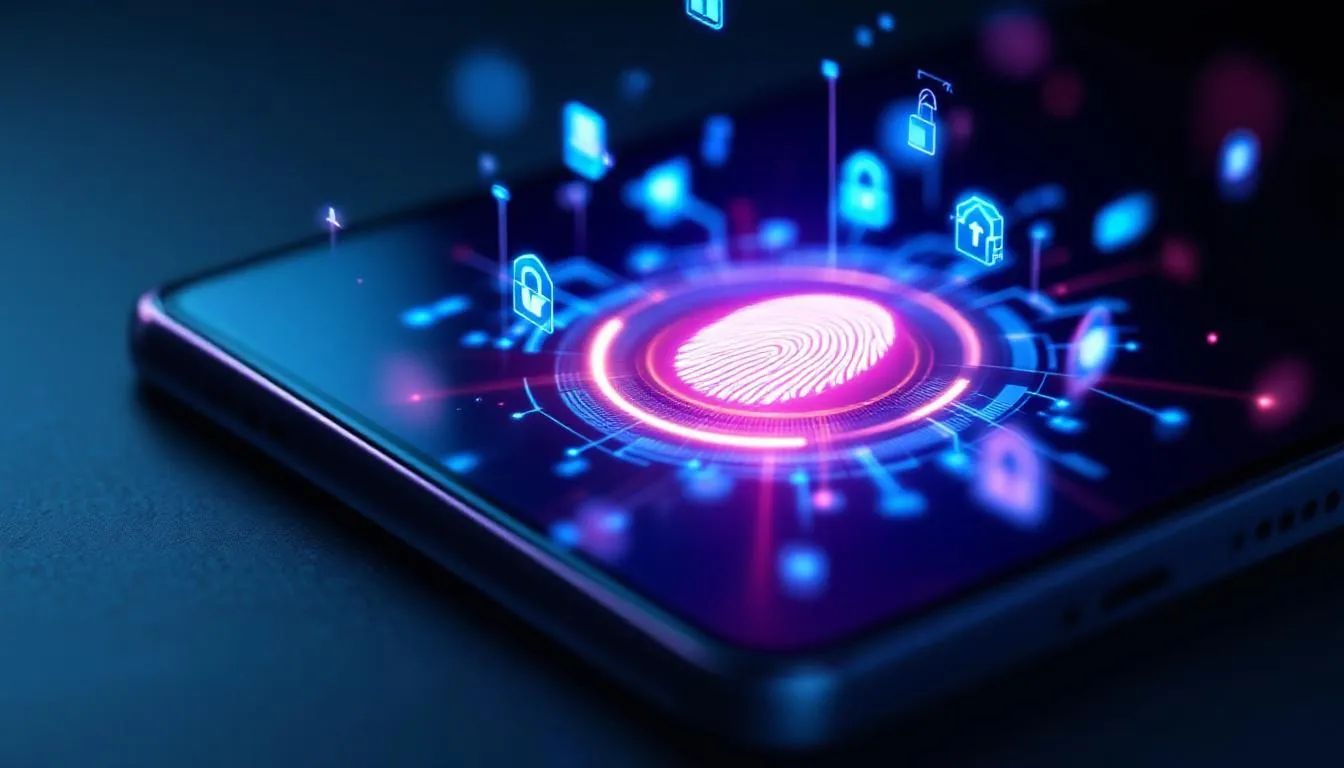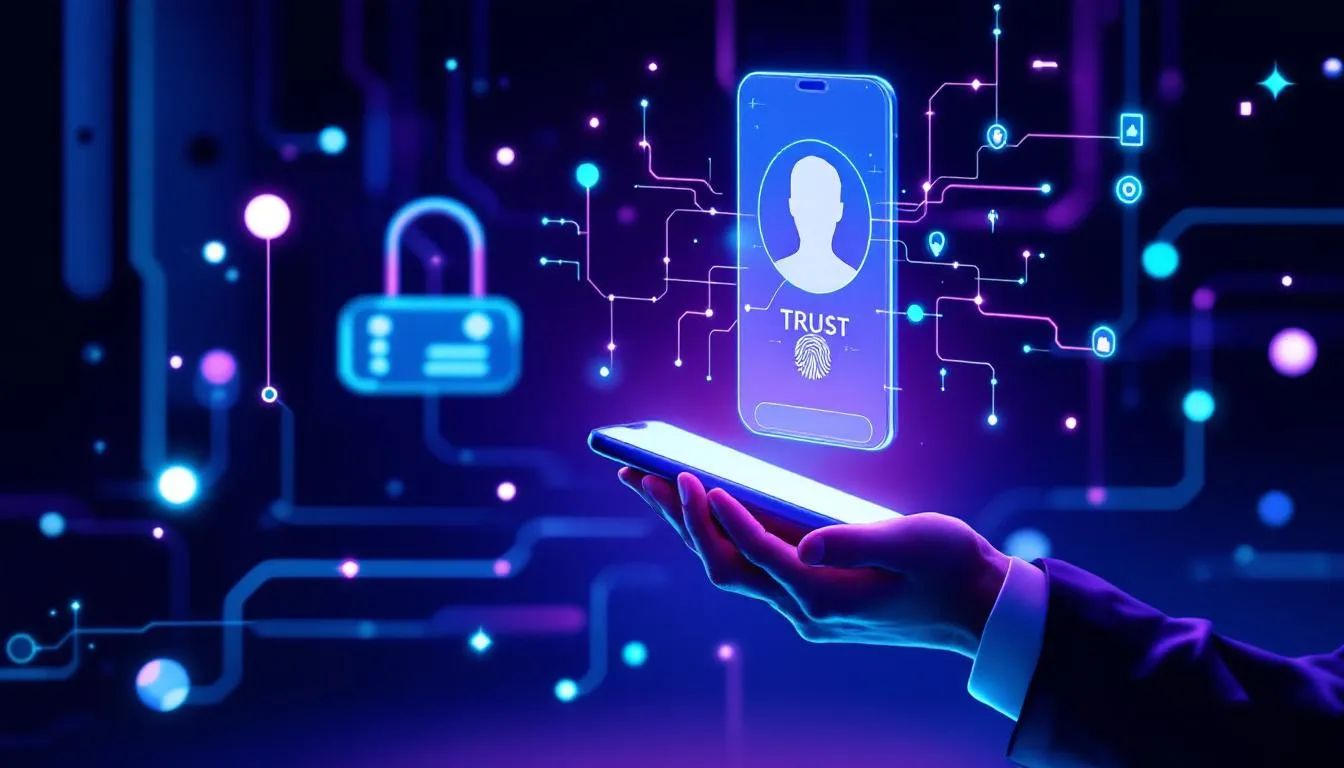Mobile Identity
As smartphones become the gateway to modern life, mobile identity has emerged as the key to secure, seamless access across digital ecosystems. From online transactions and banking to social media and healthcare apps, mobile identity enables users to verify who they are — anytime, anywhere — using their mobile devices. Phone-Centric Identity relies on billions of signals from authoritative sources pulled in real time for digital identity verification, ensuring accuracy and reliability.
Mobile identity solutions address security threats and fraud prevention by identifying, verifying, and responding to suspicious activity related to user accounts and mobile identities. These solutions also enable secure logging in, account creation, and password resets, improving both security and user experience. Managing digital identities is crucial to ensure security, personalization, and privacy for users and organizations alike. The vulnerabilities of social security numbers as credentials highlight the need for more reliable signals, such as phone-centric data, for identity authentication and fraud prevention.
According to GSMA, mobile network operators play a vital role in verifying identities and securing billions of mobile connections globally. The mobile phone is no longer just a communication tool — it’s an intelligent identity device capable of providing authentication, identity authentication, verification, and fraud protection for both consumers and enterprises. Enterprises use comprehensive identity and authentication platforms to verify identities and prevent fraud across the entire enterprise environment.
A company can leverage mobile device possession as a security measure to verify customer identity during interactions, ensuring that the person on the other end of a mobile device is truly who they claim to be. Mobile identity acts as a primary defense against identity theft, synthetic identity fraud, and account takeovers. Phone-Centric Identity provides a binary result for possession checks to determine whether a customer is interacting with their service. Digital identity verification solutions tailored for various organizations, such as banks and financial institutions, enhance security, trust, and seamless user experience in remote or mobile transactions.
By combining biometrics and artificial intelligence, mobile identity is redefining how we protect data, prevent fraud, and empower users to access digital services securely. The combination of multiple security techniques — such as app shielding, runtime protection, and risk analytics — further enhances mobile identity verification and protects sensitive data. However, some mobile apps may request excessive permissions and harvest personal data beyond what is needed, raising privacy concerns.
Mobile identities leverage mobile-specific data and events for real-time detection, fraud prevention, and secure communication. Phone-Centric Identity technology applies to various interactions, including web, app, chat, call center, and in-person services, making it versatile and widely applicable. It enhances customer experience by providing seamless support throughout processes like account opening, login, password reset, and customer service interactions, ensuring trusted and secure user interactions. Integrated, specialized solutions are essential for effective identity verification and fraud prevention across digital and mobile environments.
Learn more in The Future of Authentication.
Digital Identity
At its core, digital identity represents a person’s verified credentials — such as name, date of birth, or social security number — used to prove who they are online. A mobile identity is the portable, device-based version of this identity that lives securely within the user’s smartphone. In many cases, mobile IDs are government-backed digital versions of physical identity documents, offering legal equivalence.
This identity is verified through SIM registration, device intelligence, and liveness detection, ensuring each login or transaction is tied to a legitimate person rather than a fraudulent actor.
Modern authentication frameworks — like NIST SP 800-63 — stress multi-layered identity proofing that leverages mobile data signals such as phone number, user’s location, and device health to ensure strong identity assurance. See Multi-Factor Authentication: Your Complete Guide. Selective disclosure allows users to share only the specific information required for a transaction, minimizing data exposure.
Mobile Identity Verification
Mobile identity verification allows organizations to instantly verify new users and secure online transactions without requiring in-person checks. It relies on mobile network data, biometric authentication, and AI-powered fraud detection to confirm a user’s legitimacy.
For example, during onboarding, a credit union can verify a customer’s identity using fingerprint scans or face recognition — combined with network intelligence like SIM ownership and device integrity.
Mobile identity verification also enhances regulatory compliance by aligning with KYC and AML standards. Robust identity verification is mandated by regulations in industries such as finance and healthcare, making mobile identity solutions essential for meeting these requirements.
Identity Verification
In a world of growing data breaches and credential theft, identity verification has become critical for maintaining trust between organizations and customers. Mobile devices streamline this process, offering faster, more secure verification through biometrics and behavioral analytics.
Mobile identity verification not only improves the login process but also reduces abandonment rates by offering seamless access to services. By streamlining authentication, mobile identity helps improve customer abandonment rates, ensuring users stay engaged with digital platforms.
This enhances both security and the customer experience — a concept explored further in Cybersecurity First Principles.

Benefits of Verification
Mobile identity verification delivers a host of advantages for both organizations and their customers, forming a critical foundation for secure access in today’s digital landscape. By harnessing the power of artificial intelligence, biometrics, and device intelligence, companies can implement robust identity verification solutions that effectively mitigate fraud — including synthetic identity fraud and takeover fraud — while protecting customers’ sensitive data.
One of the most significant benefits is the ability to streamline the login process and onboarding process for new users. With technologies like fingerprint scans and liveness detection, organizations can quickly and accurately verify a user’s identity, whether online, in person, or through a mobile app. This not only reduces the risk of fraudulent activity but also enhances the overall customer experience by making access to services faster and more convenient.
Mobile network operators play a pivotal role in this ecosystem, providing real-time phone number verification and device intelligence that help organizations detect and prevent sim swap attacks and other forms of identity fraud. By integrating these capabilities, companies can ensure that only legitimate users gain access to their services, significantly reducing the risk of unauthorized access and data breaches.
Regulatory compliance is another key advantage of mobile identity verification. Organizations across industries — such as banking, credit unions, and healthcare — must adhere to strict security standards to protect customer information and prevent fraud. Mobile identity verification solutions help meet these requirements by providing reliable, auditable processes for verifying identities and monitoring for suspicious activity.
Beyond security and compliance, mobile identity verification also drives customer engagement and revenue growth. A seamless, secure verification process reduces friction for users, encouraging them to complete transactions and return to services they trust. This improved customer experience fosters loyalty and positions organizations as leaders in digital security.
Ultimately, mobile identity verification empowers organizations to create a trusted mobile ecosystem where customers can interact with confidence. By leveraging advanced technology and the expertise of mobile network operators, companies can protect customers, mitigate fraud, and deliver secure, user-friendly services across every touchpoint — whether online, in person, or through mobile devices.
Identity Fraud
As digital transformation accelerates, so does identity fraud. Attackers exploit stolen credentials and synthetic identities — combining real and fake information to create fraudulent profiles. The rise of mobile banking has increased the need for robust security measures to counter these threats. The rise of mobile fraud attacks is closely linked to the increased reliance on mobile devices for transactions, highlighting the importance of secure mobile identity solutions.
Mobile identity solutions help mitigate fraud by linking digital identities directly to devices and SIM cards, making impersonation significantly harder. With AI-driven monitoring and liveness detection, organizations can stop suspicious activity in real time.
IBM Security reports that integrating mobile identity verification can reduce fraudulent activity by up to 40%.
Mobile Security
Mobile security underpins the entire mobile identity ecosystem. By leveraging biometrics, secure elements, and encryption, smartphones now act as personal security tokens.
Mobile network operators and enterprises use device intelligence to identify compromised phones, detect SIM swap attempts, and assess risk before granting access.
The Zero Trust approach, outlined by CISA, promotes continuous verification to ensure that trusted devices remain secure. Learn more in How MSPs Can Win More Clients with Frictionless Security.
Protect Customers
For businesses, protecting customer identities is both a security and loyalty imperative. Mobile identity solutions let organizations protect customers without adding unnecessary friction.
Using mobile authentication and AI-based analytics, companies can verify users while maintaining privacy and convenience — building lasting customer trust.
Customer Engagement
Customer engagement now depends on confidence. Users expect secure, frictionless interactions when accessing their accounts, making mobile identity key to both security and satisfaction.
Organizations can personalize interactions based on the user’s location and device, creating loyalty through secure digital experiences that adapt in real time.
Customer Experience
A strong customer experience blends simplicity and safety. Mobile identity verification eliminates passwords and manual verification steps, offering faster access to services like banking and healthcare.
A mobile app can use biometric authentication and liveness detection to match user identities accurately. Learn more about protecting credentials in Credential Management: Strengthening Security from the Inside Out.
Mobile ID
Mobile ID solutions represent the next step in digital identity. They give users a portable, encrypted identity stored on their device — verified via biometrics or proximity. Mobile IDs can be remotely disabled if a device is lost or stolen, preventing unauthorized access to personal information. Well-designed mobile ID systems store only a limited set of data on the device itself, reducing the risk associated with large, centralized databases.
Countries like Estonia and Denmark already use national mobile ID systems, and enterprises are following suit to provide secure access and compliance. Mobile ID systems can provide access to essential services for populations who lack traditional forms of identification. Additionally, mobile IDs can be used for in-person scenarios, making them an all-in-one identification tool. However, the reliance on smartphones and internet connectivity for mobile IDs may exclude older adults or individuals in low-income communities, raising concerns about accessibility.
Integrating proximity-based tools like Everykey Echo lets organizations deliver security that’s both smart and effortless.
SIM Swap
SIM swap attacks happen when fraudsters trick mobile carriers into transferring a user’s number to another SIM card.
Mobile identity systems now include SIM swap detection, tracking ownership changes and suspicious patterns — especially vital for organizations handling sensitive data.
With real-time device intelligence, modern systems can detect and block SIM swap attempts before they lead to compromise.

Mobile App
In today’s mobile ecosystem, identity verification is embedded directly into apps. A mobile app acts as both a verification and authentication hub — combining biometric login, AI fraud detection, and secure onboarding.
For example, a credit union app might verify new users with facial recognition and device integrity checks. Mobile identity ensures secure logins, regulatory compliance, and a smooth user experience.
Conclusion
Mobile identity is transforming how users verify and trust digital services. By combining AI, biometrics, and device intelligence, organizations can reduce fraud, improve customer experience, and secure access across devices.
From onboarding new users to detecting SIM swap attacks, mobile identity ensures only legitimate customers gain access — protecting both consumers and businesses in a connected world.
The future of secure identity is mobile, intelligent, and frictionless.
Frequently Asked Questions
What is Mobile Identity?
Mobile identity uses mobile devices to verify a person’s digital identity, ensuring secure access to online services and reducing fraud.
How does Mobile Identity Verification Work?
It combines biometrics, mobile network data, and device intelligence to authenticate users during logins or transactions.
What is Synthetic Identity Fraud?
It’s when real and fake identity data are combined to create false profiles used for fraud or financial gain.
Why is SIM Swap Protection Important?
Attackers use SIM swaps to hijack accounts linked to a user’s phone number, such as banking or social apps.
How does Mobile Identity Improve Customer Experience?
It enables fast, secure authentication through biometrics and AI-powered verification directly on the smartphone.
